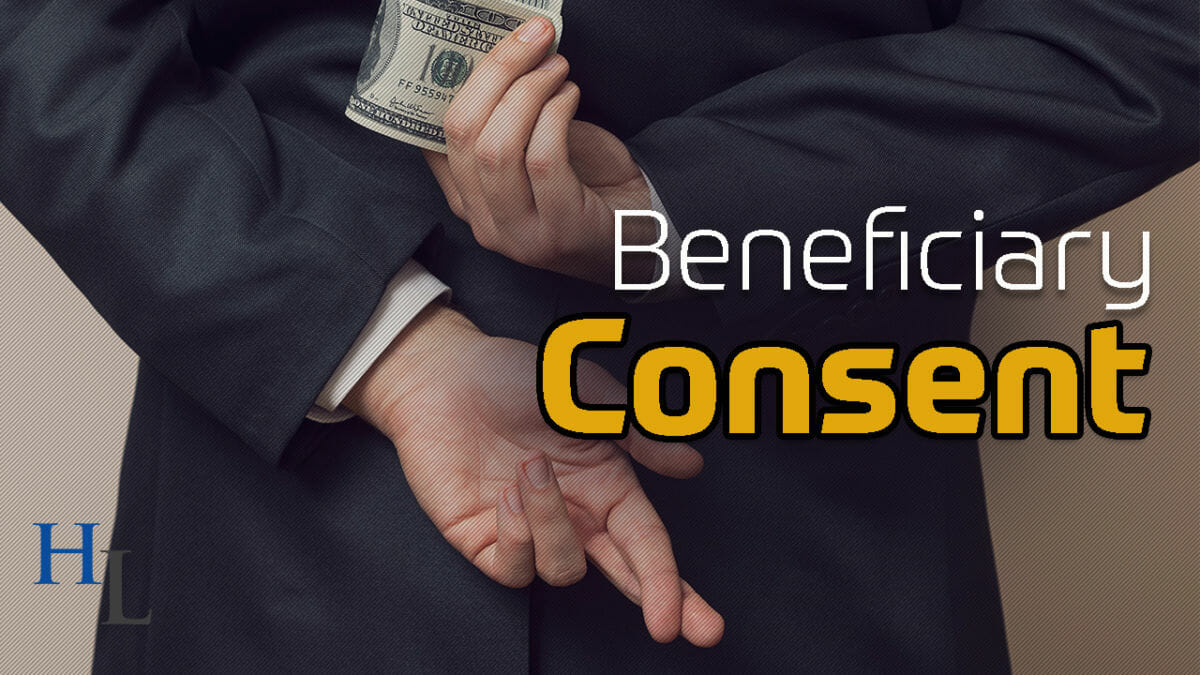


One wrong occurs when a trustee improperly secures a beneficiary’s consent to a trustee’s act or omission to act.
California law provides that the trustee can be liable for a breach of trust, despite the consent, in the following circumstances:
(1) Where the beneficiary was under an incapacity at the time of the consent or of the act or omission.
(2) Where the beneficiary at the time consent was given did not know of his or her rights and of the material facts (A) that the trustee knew or should have known and (B) that the trustee did not reasonably believe that the beneficiary knew.
(3) Where the consent of the beneficiary was induced by improper conduct of the trustee.
The law also provides that where the trustee has an interest in the transaction adverse to the interest of the beneficiary, the consent of the beneficiary does not preclude the beneficiary from holding the trustee liable for a breach of trust under any of the circumstances described above or where the transaction to which the beneficiary consented was not fair and reasonable to the beneficiary.
You can imagine how these cases arise. A trustee, usually who is also a trust beneficiary, misleads another beneficiary into giving up rights or property.
The consenting beneficiary has no idea what they’re really giving up. The trustee is either silent or misleads the beneficiary. The beneficiary later learns of the wrongdoing.
Statutory and case law address how courts should treat these consents. The beneficiary must know all of the material facts that the trustee knows or should have known, as well as all of the beneficiary’s legal rights, at the time of consent.
The consent of a beneficiary who lacks this knowledge doesn’t prevent the beneficiary from holding the trustee liable. The trustee must not induce consent by improper conduct.
The duty of loyalty mandates that the trustee must not in any way take advantage of any of the beneficiaries. The trustee-beneficiary relationship is not considered to be arm’s length. It is a fiduciary relationship.
A trustee is at risk when he secures a vulnerable beneficiary’s consent, even though the beneficiary is not legally incapacitated. When a trustee deals with the beneficiary on the trustee’s own account, the beneficiary can set the transaction aside if it is not fair.
To give an example, a trustee who is also a beneficiary negotiates with another beneficiary to buy the other beneficiaries interest in a trust that holds real estate.
The beneficiary has a 25% interest in the trust. The value of the real estate is $10,000,000.
The trustee buys the selling beneficiary’s interest for $500,000 – a price that is a fraction of the fair market value of the beneficiary’s interest.
The selling beneficiary has no idea as to the value of the trust’s assets. The trustee fails to give the beneficiary any information or maybe worse, tells the beneficiary the trust assets have no value.
A case like this just doesn’t seem right – because it’s not right.
Each case has its own set of circumstances. We use a little common sense, a fair amount of law, and our judgment as to how to handle cases that just aren’t right.
When we take a case, we have a spirited litigation process grounded in experience, training, and our own Hackard Law method.
These cases are all about recovering money and assets. If you have a case that you think may entitle you to a money recovery, call us at Hackard Law: 916 313-3030.
We’ll be happy to speak with you.
Hackard Law: Attorneys Making a Difference

Michael Hackard is a top rated “AV” for over 20 years (“AV Preeminent is a significant rating accomplishment- a testament to the fact that a lawyer’s peers rank him or her at the highest level of professional excellence.”). Avvo also ranks him with their highest rating – “ 10.0 Rating – ‘Superb.’” Michael is also a “SuperLawyer” – an honor reserved for no more than five percent of attorneys in each state. [ Attorney Bio ]